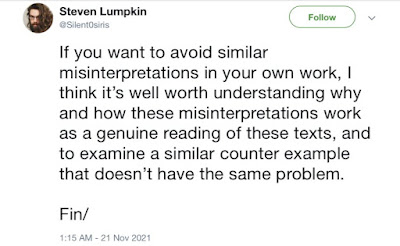Is it ironic to complain about media illiteracy by defending media illiteracy? "The main character is likable and relatable but he does bad things, therefore it's reasonable to assume the author is saying those things are okay." This is like a child's understanding of literature.
This is how Walter White sees himself, not how anyone who consumes media with a remotely critical eye should see him. Walt is cowardly, weak, pathetic, and so full of himself he's incapable of recognizing his own limitations. He repeatedly bites off more than he can chew and only survives due to his intelligence and dumb luck. Along the way he loses his family, his best friend, his surrogate son, his dignity, and eventually the "money, power, and respect/fear" that he sacrificed everything for.
Darth Vader is maybe the coolest character in movie history. He looks awesome, he has an awesome voice, he dominates the scene every time he's on screen. Yet he's obviously fucking evil; clearly "looking cool" doesn't excuse any sin or personal suffering. Also like Darth Vader, Walter White gives his life to save his "son" by eliminating an evil even greater than himself. There is catharsis in seeing these Nazi bastards get they deserve, but these are redemptive acts for fallen characters, not a glorification of their badassery.
Similarly this would be an inappropriate time to rub the audience's face in these characters' failures. They've already lost their power and dignity, reduced to cringing, pathetic figures barely able to walk, facing the end of their miserable lives.
It's also odd to complain about media tricking the audience into misinterpreting it as saying the protagonist is cool and good while misinterpreting the protagonist's victims as unsympathetic. You don't even have to like Skyler. What about the terrible paths down which Walt's actions send Hank and Jesse, the two most sympathetic characters on the show? What about the horrific domestic violence that plays out in front of Walt's children? What about the pathetic wretch Walt is reduced to at the end, having lost the money for which he sacrificed his family and the family for which he sacrificed his soul? This is all part of the story, not just the parts in the middle where Walt does something cool.
"I am the one who knocks" is a badass line but it's all bluster. Heisenberg is just the hat.
The humans win in Starship Troopers! They have cool spaceships and cool space guns and cool costumes (some of which look like Nazi SS officers, weird coincidence)! Therefore the humans are right and good! The bugs are ugly monsters, therefore they are bad!
Interpretations like this are a result of media illiteracy, not an excuse for it. There's no sin in misunderstanding a text, but such fundamental misunderstandings of such straightforward allegory indicate a flaw in reader analysis, not the author making their villains too cool.
"I agree that people are bad at understanding media, and here are some examples that confirm people are bad at understanding media, but it's the media's fault for not being stupid and obvious enough."
If straightforward narratives like Breaking Bad and Dune are too nuanced and complex for their own good, exactly what media can the reader ever be blamed for misinterpreting? Marvel movies? The fucking Star Wars sequels? Or maybe Star Trek: Picard, in which Pulitzer Prize- and Academy Award-winning writers took the humanist ethos of Gene Roddenberry’s vision for a utopian future free from bigotry and told a story about how it’s good to fear and hate people who are different from you?
In today’s Golden Age of Media, anything’s possible!




















